A rice parboiling system improves the livelihood of hundreds of women in Benin.
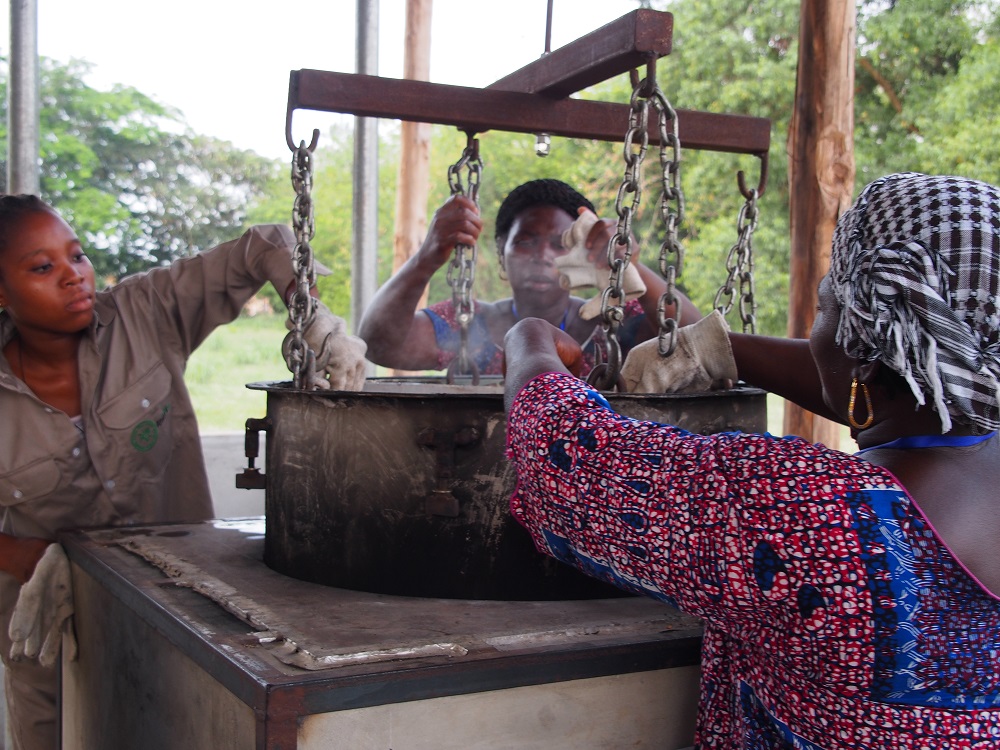
An improved rice parboiling system developed by the Africa Rice Center (AfricaRice), combined with training and the adoption of an innovation platform approach along the rice value chain, is starting to make a difference in the lives of more than 450 women in the Glazoué rice hub in central Benin. It shortens processing time, reduces drudgery, and does not expose the women parboilers to heat burns.
Rice parboiling involves the practice of partially boiling rice in the husk before milling to make the rice firmer, less sticky, and more nutritious than nonparboiled rice. Parboiled rice is preferred in parts of Benin, Nigeria, and Ghana, and in other countries of West and Central Africa. It is reported that the bulk of the rice imported into Benin is parboiled rice, which enters the Nigerian market through informal channels. The demand for goodquality parboiled rice is high because it is already clean and easy to cook.
Designed for women
Rice parboiling is mainly performed by rural women in these regions and it significantly contributes to their livelihoods. However, the process is laborious, time-consuming, unsafe, and inefficient. It requires lots of firewood and water. Additionally, the traditional parboiling process using rudimentary equipment and methods often produces low-quality rice with many impurities, broken and burned grains, and undesirable smell.
According to Sali Ndindeng, AfricaRice grain quality and postharvest scientist, unless rice processing technologies can produce a marketable product, consumer demand will not be satisfied by locally produced rice.
To reduce women’s drudgery and to improve the milling yield and quality of local rice, AfricaRice, led by Dr. Ndindeng, designed a prototype based on improved models from the Institute of Agricultural Research for Development in Cameroon, the Food Research Institute in Ghana, and the National Institute for Agricultural Research in Benin (INRAB). The new technology was code-named Grain quality enhancer, Energy-efficient and durable Material (GEM) parboiling technology. GEM technology consumes much less fuel and water than the traditional system and is safer and more durable. It is equipped with hoists and rails to lift and move the heavy vessels in which the paddy is steamed.
The small-scale locally adapted parboiling prototype was fine-tuned in close collaboration with McGill University, Canada, as part of a joint project with support from Canada’s Department of Foreign Affairs, Trade, and Development.
A GEM technology system was set up in Glazoué through the Support to Agricultural Research for Development of Strategic Crops in Africa (SARD-SC), an African Development Bank-funded project. Members of the Women Parboilers’ Association in Glazoué were consulted at every stage of the development and testing process and were trained in best practices for the various components of parboiling. These women, in turn, trained other members of the Association from Glazoué and Malanville, in northern Benin, which is an important hub for irrigated rice.
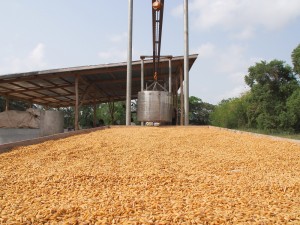
Immediate impact
After only two months, the average monthly quantity of parboiled rice produced as well as the average monthly income from this activity more than doubled compared with those obtained using the traditional parboiling system.
With the traditional system, the women parboilers were processing only about 120 kg of paddy per session. Using GEM technology, they were able to process 300 to 400 kg of paddy per session. They have plans to increase the amount to 1 ton.
Moreover, the quality of the parboiled rice is similar to that of premium imported rice. Trials showed that, with GEM technology, there was less than 2% burned grains, 90% whole grains, zero chalkiness, and zero impurity compared with about 24% burned grains, 60% whole grains, more than 20% chalkiness, and 5% impurities with the traditional system.
“The quality is much better now. Traders from here and from Cotonou are readily buying up all our rice and are also giving us a better deal,” said Mrs. Batcho Léontine, chair of the Glazoué Women Parboilers’ Association. “Now, we can pay our children’s school fees and take care of medical and other household expenses without having to ask our husbands for money.”
Economically valuable technology
“The GEM parboiling unit, which can be easily built locally, provides an opportunity to improve the quality and competitiveness of locally produced rice,” Dr. Ndindeng said. “But it is also important to keep in mind that improvements in rice quality require upgrading by actors throughout the value chain.”
The innovation platform (IP) enhanced the effectiveness and sustainability of the GEM technology by helping build trust among the various actors involved in the Glazoué rice hub: the rice farmers’ association, the women parboilers association, millers, input dealers, traders, blacksmiths, microfinance agencies, extension service, the nongovernment organization Vredeseilanden (VECO), community radio, as well as INRAB and AfricaRice.
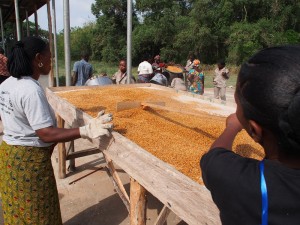
“These achievements have been possible because of the availability of a promising technology and training,” said Dr. Sidi Sanyang, leader of the Rice Sector Development Program and SARD-SC project coordinator for AfricaRice. “But the success is also due to the establishment and facilitation of the innovation platform along the rice value chain in the Glazoué hub.”
“The IP encouraged farmers and entrepreneurs to participate in the rice value chain as an additional source of income,” said Dr. Sanyang. “It allowed the women parboilers to be more competitive by integrating them into rice value chains.” A positive indicator of this is that the Glazoué Town Hall is now promoting the sale and consumption of locally parboiled rice through contractual arrangements with women parboilers.
Dr. Sanyang added that the SARD-SC project is focusing on training in value addition, marketing contractual arrangements, quality packaging and labeling, and leadership. It is also helping young people to become acquainted with the agri-business aspects of parboiling. Building on this successful model, AfricaRice and its partners are planning to set up a similar parboiling system within the IP process in Malanville.
“AfricaRice’s Strategic Plan promotes cross-cutting research to benefit rural women and the development of more inclusive and gender-equitable rice value chains,” said AfricaRice Director General Harold Roy-Macauley. “We are happy that the world community recently adopted 17 Sustainable Development Goals, which include gender equality, among others.”
Ms. Mohapatra is the head of Marketing and Communications at AfricaRice.

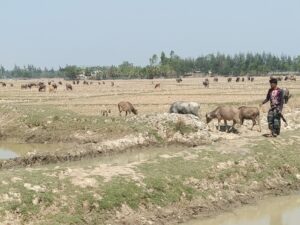


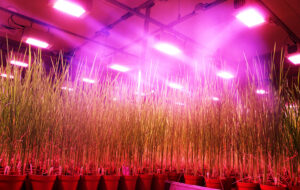
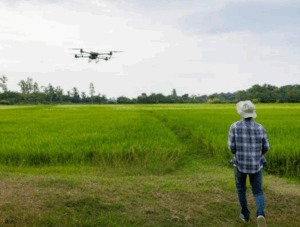

Hello, I want employ this parboiling technology in the Northern region of Ghana; is it already in Ghana?
If not what can I do to gain this technology and the necessary skills transfer?
Best regards
John Asafu-Adjaye
Dear Sir
For more information on this please contact:
Jean Moreira (Mechanization Specialist)
Roger Ahouansou (Agro-processing Specialist)
AfricaRice Headquarters
01 BP 4029, Abidjan, Côte d’Ivoire
T: +225 27 22 48 09 10
F: +225 27 22 44 26 29
E-mail AfricaRice@cgiar.org